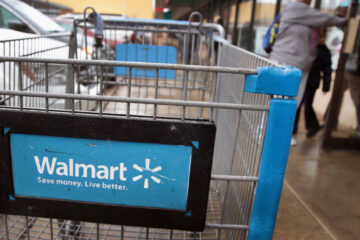The Mexican restaurant segment has been led in recent years by the success of fast-food chains Yum Brands’ (YUM) Taco Bell and Chipotle (CMG) .
Taco Bell leads the pack with about 7,936 restaurants, while Chipotle has about 3,398 units, according to data company ScrapeHero.
Related: Popular fast-casual Mexican chain closing dozens of restaurants
While Mexican fast-food has been doing fine lately, several Mexican casual restaurant chains have struggled over the last 20 years. Chi-Chi’s restaurant chain, which was founded in Minneapolis, filed for Chapter 11 in 2002. Then in 2003, a hepatitis outbreak in a Beaver, Pa., from contaminated green onions in salsa resulted in 600 infected diners and the deaths of four people, Daily Meal reported. The chain, which had as many as 200 locations at its peak, folded in 2004.
Another casual Mexican chain Don Pablo’s, which had as many as 120 locations, filed for bankruptcy in 2004 and 2007, struggled for 10 more years before filing bankruptcy again in 2017, and finally shut down in 2019.
Cypress, Calif.-based Chevy’s Fresh Mex had as many as 37 locations and filed bankruptcy a couple of times, most recently in 2018, and now has 18 locations.
The fast-casual Mexican segment also had its problems. Tex-Mex chain Tijuana Flats Restaurants, which had as many as 123 locations, on April 19 filed for Chapter 11 bankruptcy in the U.S. Bankruptcy Court for the Middle District of Florida, sold the company to a new ownership group and closed 11 of its locations.
It currently operates 65 company owned locations throughout Florida and another 26 franchised restaurants in Alabama, Florida, North Carolina and Tennessee.
The new owners, Flatheads LLC, said it purchased the restaurant chain from TJF USA LLC to revitalize its restaurants and reinvigorate the customer experience. It plans to go back to basics and original roots, focusing on customer service, quality food and fair prices.
The new owners said they will renew the chain’s focus on quality controls, speed of service, consistency of food, serving size, and improving in-store experience. The company also plans to renovate several of its locations to refresh them and improve the dining experience.
Related: Struggling energy company files for Chapter 11 bankruptcy
Labor costs have been a big issue for restaurants, especially in California. Recent changes in the Golden State’s minimum wage rules have had a devastating effect on fast-casual Mexican restaurant chain Rubio’s Coastal Grill.
California’s AB 1228 increased the minimum wage for fast-food workers working at chains that have more than 60 locations in the state from $16 to $20 per hour.
Rubio’s reacted to the steep wage increase by closing 48 locations in California to bring the number of its units under 60 in the state. The restaurant chain, which had 150 locations at its peak, had 134 units in California, Arizona and Nevada before closing the 48 restaurants.
More bankruptcy:
Historic craft brewery plans reopening after bankruptcy filingStruggling company’s creditors file Chapter 11 bankruptcy for itKey healthcare company files for Chapter 11 bankruptcy
The bad news doesn’t end there for Rubio’s.
The Carlsbad, Calif.-based chain’s parent MRRC Holdco and two affiliates on June 5 filed for Chapter 11 bankruptcy in the U.S. Bankruptcy Court for the District of Delaware in Wilmington seeking to restructure its debt. The company will also seek debtor-in-possession financing, according to court papers, but has not filed a DIP motion as of late on the petition date.
The debtor listed $10 million to $50 million in assets in its petition and $100 million to $500 million in debt, including $72.8 million in funded debt owed to lender TREW Capital Management Private Credit and $2.7 million in trade debt owed to Southwest Traders Inc.
Related: Veteran fund manager picks favorite stocks for 2024


